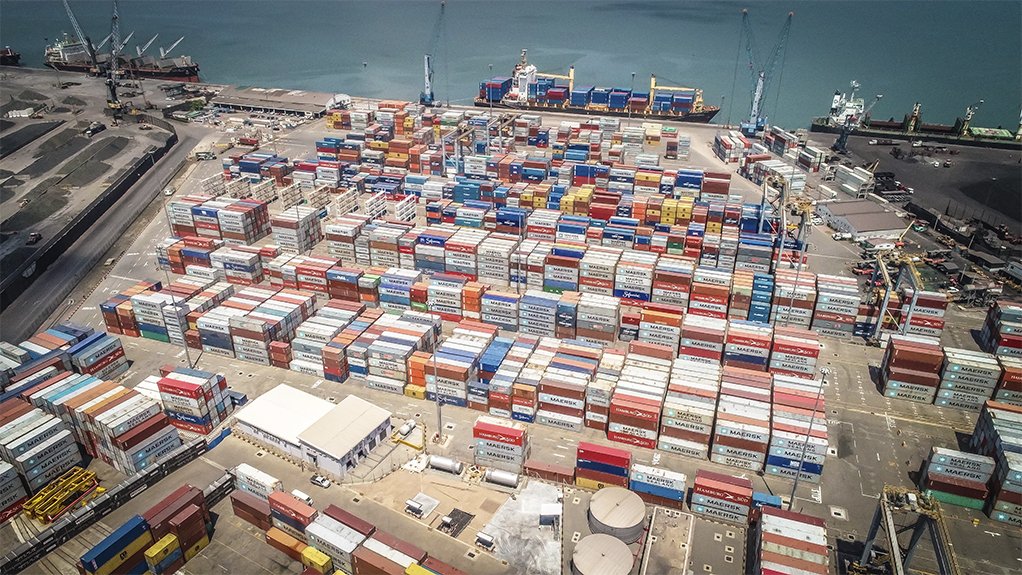Many African countries are experiencing difficulties and significant financial impacts amid tariff changes imposed by the US, but, while trade diversification initiatives take significant time and effort, Africa should endure this pain to ensure it emerges more resilient in the future.
This was the message of lawyers from law firms Cliffe Dekker Hofmeyr (CDH) and Holland & Knight during a briefing on September 22, hosted by CDH.
A 30% tariff had been imposed on goods from South Africa exported to the US from August 8 and the impact could clearly be seen, with the value of South African goods exported to the US market declining from about $2-billion in the first quarter of the year to less than $1-billion in the subsequent quarter, which was during the temporary reprieve before the tariffs were imposed.
The new tariffs significantly affected the automotive industry, with South African government officials indicating that there were thousands of jobs at stake in the broader supply chain and an automotive manufacturer announcing job cuts, said CDH Industrials, Manufacturing and Trade director Jackwell Feris.
Similarly, there had been initial proposals to impose a 50% tariff on goods from Lesotho, which is a textile-exporting economy, to the US. This did not come to pass, but the threat led to 80% of orders from the US being cancelled. This led to significant workforce reductions and the country declared a state of disaster as a consequence.
Countries across the continent have had similar tariffs imposed and were experiencing similar impacts on their economies, he noted.
The tariffs that had been imposed on finished goods ran counter to the aim to use trade to drive industrialisation in Africa, he added.
While diversification had been adopted as a counter to these impacts by several African countries, it was easier said than done, Feris said.
For example, while the African Continental Free Trade Area holds significant promise, physical obstacles in the form of insufficient transport infrastructure prevented a rapid pivot to greater trade among African countries, he noted.
Additionally, countries must ensure they did not become dumping grounds for exporters hunting for new markets, following the tariffs imposed by the US, Feris advised.
Crucially, the US administration's three main trade policy goals included building the US industrial base, increasing US jobs and lowering the US's trade deficit with its trading partners. The primary tool the administration was using to achieve these was tariffs, said Holland & Knight International Trade partner Patrick Childress.
The US also seemed to prefer forging bilateral trade deals, and countries should frame their positions such that they resonated with these three objectives, he recommended.
However, there was also a shift happening, with the US government being more open to listening to stakeholders and making changes to tariff policy on specific goods and/or for specific situations.
For example, in addition to tariffs imposed on Brazil by the US, there was an annex in the policy document of goods that were exempted from these tariffs, with Açaí berries being one such product as it was not produced in the US, he illustrated.
“The US administration is open to hearing from stakeholders to impose tariffs or provide tariff relief for targeted goods in specific situations,” he said.
Similarly, while the initial wave of tariffs had been focused on raw materials to some extent, such as steel, aluminium, timber and lumber, this was not the end of the story, warned Childress.
The US administration was looking at inclusion processes and had asked for input from US stakeholders in these industries on additional tariffs on finished goods or whether downstream products should be added to the tariff scope.
“We recently saw tariffs being imposed on finished goods that incorporate steel and/or aluminium, with these goods now facing additional tariffs based on the content or percentage of value of the materials in the finished goods,” he said.
Meanwhile, countries aiming to diversify their trade partners must take a balanced approach. For example, the US remained a significant consumer economy, accounting for about 30% of the global consumer base, and companies and countries should not disregard it, Feris said.
“From an African perspective, when developing diversification strategies, we should acknowledge the importance of the US as a big market, but not be solely dependent on one market.
“African countries are feeling the pain and diversification fundamentally costs time and effort, but this is an investment that must be made,” he said.
Tangible benefits from trade diversification could take a few years and the focus should be to build resilience through diversification.
Countries and companies should rather endure the pain now and, by implementing balanced strategies, emerge more resilient, he said. ![]()






